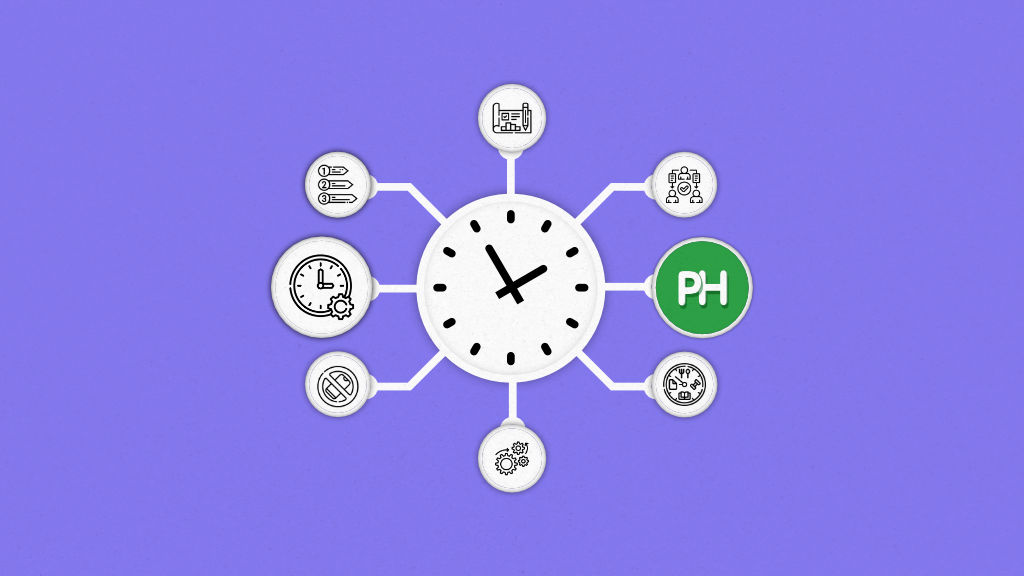I’d like to thank Moritz Hofmann, CEO at clockodo, the co-author of this article for crafting a thoughtful and effective piece of intellectual content for the readers.
Time is running – every day, every minute and every second. Even though it is the same for everyone (24 hours a day, 60 minutes an hour), every person experiences it differently, depending on the activity. But for a business, it is necessary to plan tasks and services and therefore to know how long every step in a project takes.
Trying to estimate a minute is easy when you count to 60. But even with this trick, you often miss the exact second. Trying to estimate a longer time period is getting more difficult, especially when there are distractions all around. During the workday, there are a lot of other tasks to concentrate on. After completing a project, it is tricky to tell how long each step took. A day with nothing to do feels much longer than one with a single, important project to manage.
This is complicated by the fact that every person experiences time differently, depending on whether he or she likes or dislikes an activity. Nice and happy moments seem to fly while negative hours feel like days. Therefore, two employees can experience the exact same workday differently.
Your time estimation skills decide whether you’ll succeed or fail. Good time management practices go beyond the usual guesswork. Sometimes, it takes the form of meticulous planning and at times, you might need to take some help from advanced time tracking software. The knowledge of these planning tips, techniques, and hacks is essential to run a business effectively.
Planning time periods is important
The importance of time management cannot be ruled out at work and for your personal life, it is important to plan activities and services. In a calendar, people write down their appointments for a certain date and time period. Two activities should not overlap and between two appointments one needs time to change the location.
As a business, you can estimate how many days a service takes. Depending on the period of employment and the service, employees are able to tell how many hours they need for a special task. But this becomes more difficult with new tasks or ones that differ from customer to customer. When answering the client’s requests, a business must know about the next free time slot and about the time period it will need to finish the task. Otherwise, there is no way to plan precisely.
To know the revenue of a service, a business needs to calculate the expenses. Staff costs, material, and running costs belong to these expenses and depend on the time period of the task. The longer the employees need to finish, the more money does the job cost and the less new tasks can be started.
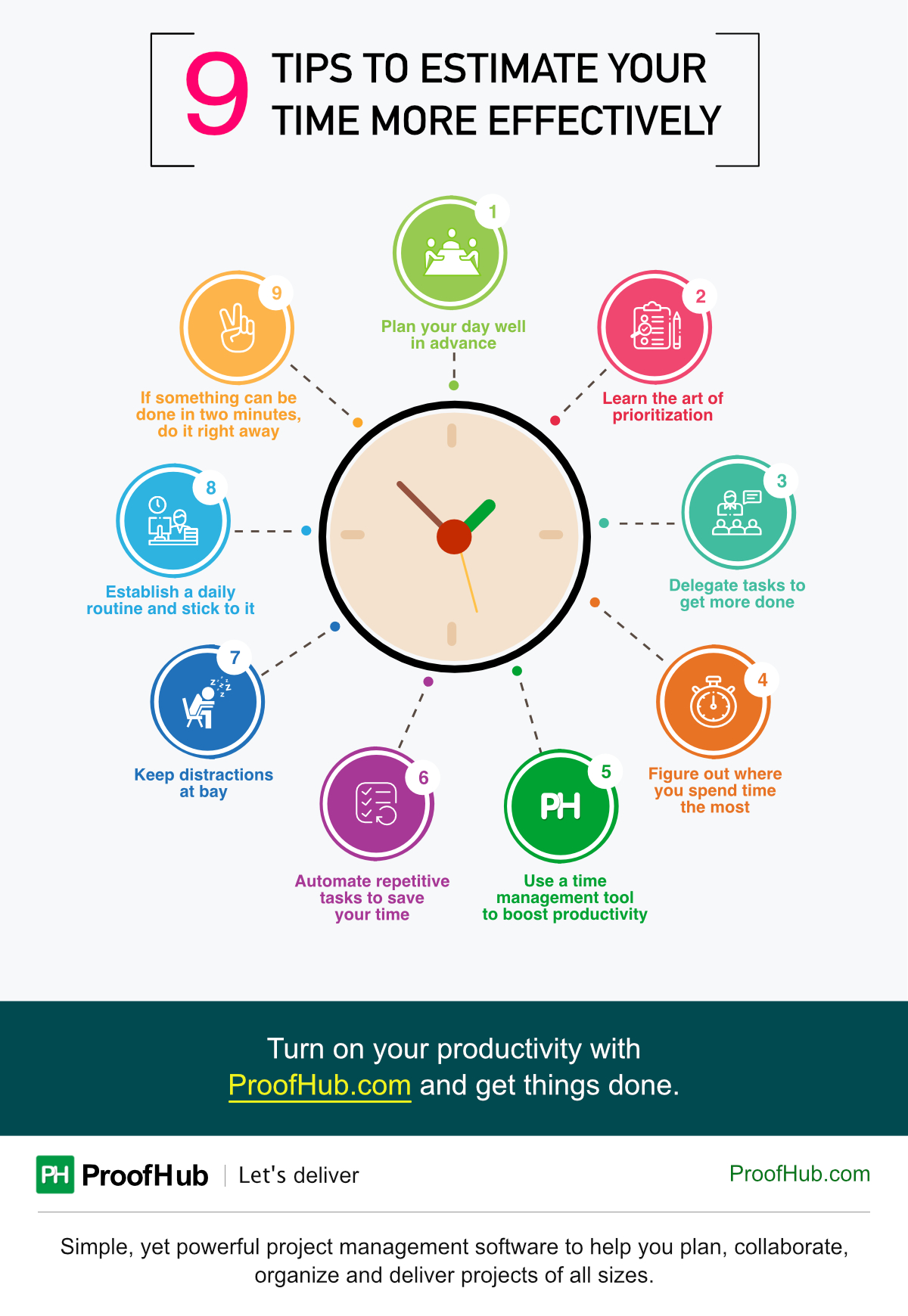
9 Tips to manage your time more effectively
Here are some practical time management strategies to help you manage time better. Let’s see what these tips are:
1. Plan ahead
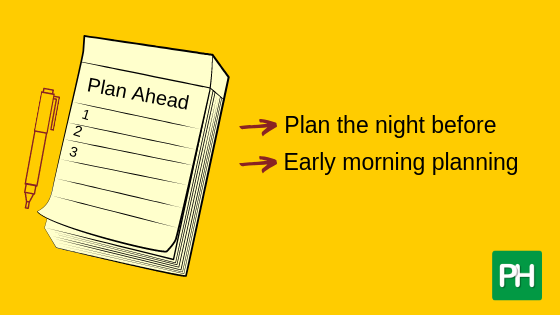
One of the best ways to estimate time is to sit back and plan your day in advance. Very basic but very effective. It’s not a smart move to start working with no direction at all. When you take things with no clarity. You hardly ever achieve something productive.
You can do two things:
- Plan the night before: Before you go to bed, take 10-15 minutes to figure out important tasks for tomorrow.
- Early morning planning: Get up earlier to gain some clarity on how to go about your day. It gives direction and motivation to act on the right things.
2. Prioritize wisely
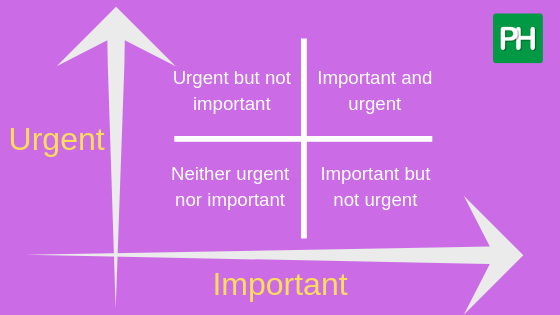
Poor prioritization or no prioritization often results in time wastage. Doing anything and everything isn’t always the wisest decision. To prioritize better, use the following popular prioritization technique. Divide tasks at hand into four categories as described below:
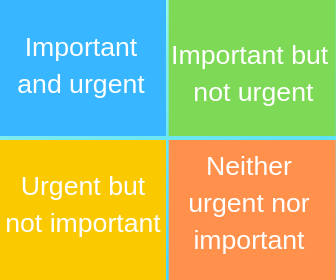
- Important and urgent: Tasks that must be done at any cost.
- Important but not urgent: Tasks that are important but can wait.
- Urgent but not important: These tasks aren’t crucial but need to be done anyway.
- Neither urgent nor important: Such tasks waste both time and effort.
Be smart enough to know the tasks that need your attention and which can be delegated and outsourced. This brings me to the next point.
3. Learn to delegate

Delegation is one of the hardest things to do but if you know how to do it, it can do wonders for you. If you’re a project manager or someone helming a senior position, you should see what can be passed to your team members so you can focus on high-priority stuff.What to do if you’re not a manager? You can still delegate specific work items to others. You can take favours from colleagues and friends and ask for their help. Make sure to return the favour when they need help. Remember that great companies thrive on great teams.
4. Figure out where you spend time the most

If you’re bad at estimating time, realize where you’re doing it wrong. We often spend a lot of time on things that aren’t of much importance or don’t contribute much to the bigger picture. Be mindful of habits or tasks that are time-wasters.At the end of the day, take a look at all the work you have done and see how much time was spent on them. Make note of what was productive and what was not. Time management tools are enabling you to estimate your time better. Let’s talk about them in detail in the next point.
5. Use a time management tool

An effective time management app or software helps track time and planning work. Setting personal goals and sticking to them is much easier with such a tool. It helps you to plan work smartly with visual boards. A time management tool is a must-have for teams that like to make the most of their time.
Whether it is about billing clients accurately or taking care of your personal goals and tasks, time management tools can help you achieve that with ease. You can try ProofHub to record every minute being spent at work and manage your time efficiently. Or, you can also use clockodo, a time tracking software for faster time tracking and accurate invoicing.
clockodo tracks working time all over the world. The tool provides a stopwatch, detailed reports, setting options for every single employee, and an absence calendar. Users choose a customer, project, and service for every entry so that you will have a complete overview of your working times.
6. Automate repetitive tasks

We spend a lot of time doing the same thing over and over again. Fortunately, with the advanced technology, so many daily operations can be easily automated saving us a lot of precious time. The key to success is smart time management skills and some hard work. You might be clueless of the number of hours you would get by automating repetitive tasks. It’s up to you how you whether you would like to use that time to brainstorm or rejuvenate.
Some mind-blowing tools can help you automate daily little things whether it’s about creating presentations, managing emails, posting content on social media, and proofreading documents.
7. Eliminate distractions
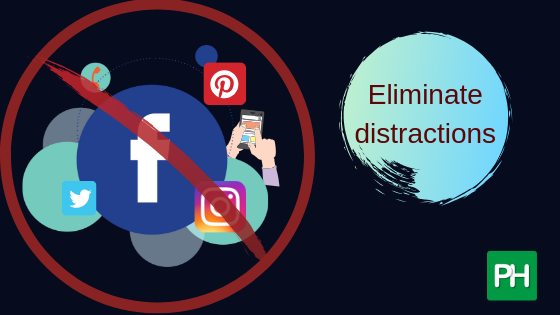
We all face distractions every day. In fact, the truth is distractions have become an indispensable part of our lives. Common types of distractions include smartphones, emails, chatty coworkers, social media, online shopping, etc.These distractions consume a lot of our time. The earlier we can get a hold of them, the better it is. Try the following things to eliminate distractions in your life:
- Turn off your phone or keep it on silent while working
- Close social media accounts and turn off notifications
- If you cannot work with music, don’t have it on
- Don’t hop on one task from other until it’s finished
Tip: Carefully assess your phone usage and limit the time spent on the phone and social media. Let others know when you don’t want to be disturbed or find a less distracting place to work at.
8. Establish routines and stick to them

Perhaps the most important part of time management is establishing routines and creating work patterns. According to Claire Diaz Otriz, the author of Design Your Day and a productivity expert said that the best thing you can do to be productive is to create an ideal morning routine. If you manage to achieve the first few tasks of the morning, you can sustain your focus for the entire day.
Start with the basics. Once you are awake, do some quick exercise to get your body moving followed by meditation, journaling, reciting affirmations, or whatever you enjoy doing. Make sure to bracket all these activities in a specific time slot and stick to the process. Decide your biggest frog for the day and try to finish it in the decided deadline. Remember that it is necessary to master a consistent routine in order to achieve your highest level of productivity.
9. The two-minute rule to beat procrastination
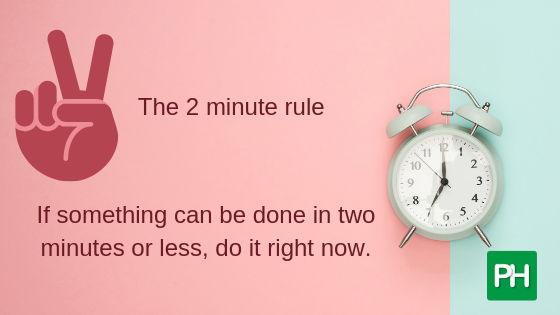
Most of the tasks you leave for tomorrow aren’t that difficult or time-consuming, but for known or unknown reasons you avoid doing them. There’s a technique called the Two-minute rule that might help you overcome procrastination.
According to this rule, if something can be done in two minutes or less, do it right now. It could be drafting an email to a client, doing dishes after your meal, reviewing content, and so on.
The other interpretation of this technique states that it’s not always possible to finish something in two minutes but one can definitely start it or at least get the ball rolling. Sometimes, it’s the hardest part and that’s exactly the purpose of this rule.
7 reasons you should use ProofHub for better time management

Being a full-fledged project management and time tracking software, ProofHub is loaded with some high-rated time management features and advanced capabilities. Here’s how you can use ProofHub to better time estimation:
- Set time estimates for each task and subtask
- Timesheets to record time data
- Make manual time entries
- Multiple timers to track time spent on different tasks
- Get by-minute details for accurate time estimates
- Your entire time data in a central place
- Export timesheets for hassle-free invoicing
Remember that time can be both rewarding and penalizing. It depends on how you use it. Whether it is your professional life or personal, learning how to make the most of it can make your life much easier. It’s completely up to you how you do it. So, how would you get better at it?
